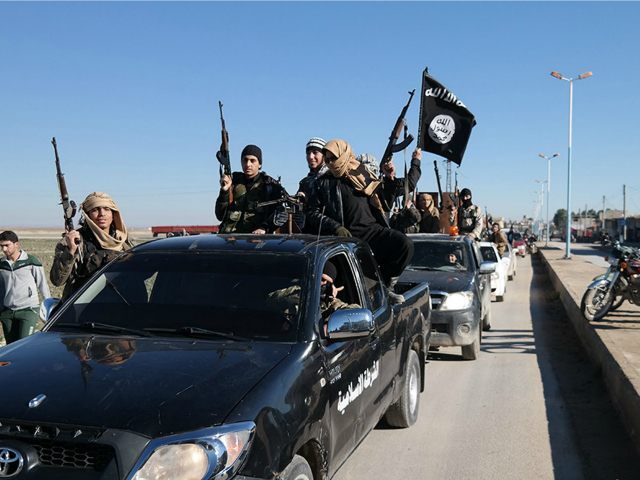Even as U.S. bombs continue to rain down on Islamic State (ISIS/ISIL/IS) positions, the terror group has succeeded in replenishing its ranks and growing its fighting force.
Since Tuesday, U.S. airstrikes targeted ISIS positions on 16 separate occasions, the Pentagon reported. The military reported that the strikes were centered around Baiji, home to Iraq’s largest oil refinery.
The Baiji-centered airstrikes neutralized four ISIS tactical units and destroyed three vehicles and an improvised explosive device (IED), Reuters reported.
The U.S. air campaign also took to Syria, commencing three separate strikes on ISIS targets in Raqqa, which is considered the Syrian capital of the terror outfit.
American officials have lauded ISIS’s five-figure casualty numbers in an effort to show that the air campaign against ISIS is successful.
“We’ve taken about 13,000 enemy fighters off the battlefield since the September-October time frame,” U.S. General Hawk Carlisle told reporters at the beginning of June. Similarly, Deputy Secretary of State Tony Blinken told the media two days later that airstrikes had killed “more than 10,000” ISIS fighters.
However, ISIS is at least breaking even in terms of making up for its lost comrades on the battlefield, experts have told Foreign Policy.
“The strength of ISIS continues to grow, so they’re getting more in from recruits than they are losing through casualties,” said Rick Brennan, a senior political scientist at the Rand Corporation.
Others estimate that ISIS is breaking even in its martyr/recruits ratio.
Harlan Gambler of the Institute for the Study of War told the media outlet “It’s turning out to be about even.”
The jihadist group has successfully recruited foreign fighters to join its Middle East holy war and continues to recruit from within rival Sunni Islamist groups, including al-Qaeda.
Two of al-Qaeda’s top spiritual leaders have warned that the radical group is suffering a complete breakdown from within, citing ISIS’s successful propaganda campaign in recruiting Sunnis, who would otherwise be potential al-Qaeda members.
The spiritual leaders blamed al-Qaeda leader Ayman al-Zawahiri for the lack of leadership. “There is no organizational structure. There is only communication channels, and loyalty,” a top cleric reportedly said recently.

COMMENTS
Please let us know if you're having issues with commenting.